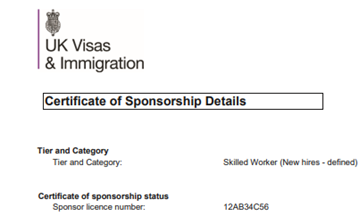Information Technology Directors, classified under SOC Code 1137, are pivotal leaders in the digital landscape, responsible for shaping and overseeing the IT strategy of an organization. Their role is integral to the success of the business, as they ensure that technology aligns with the organization's goals. Key responsibilities include:
- Strategic Development: In collaboration with senior management, they establish the organization's IT strategy to enhance operational effectiveness.
- Implementation Oversight: They direct the implementation of IT infrastructure, procurement, procedures, and standards to ensure alignment with the strategy.
- Business Planning: IT directors develop periodic business plans and operational budgets to deliver agreed service levels effectively.
- Staffing and Recruitment: They assess staffing needs, oversee recruitment, and set training policies to build a competent IT team.
- Project Management: Major IT projects are prioritized and scheduled, with oversight provided to ensure successful delivery.
- Technology Evaluation: They research and evaluate new technologies, ensuring they meet the organization's broader requirements.
- Client Collaboration: Working directly with client or senior management, they clarify the aims, objectives, and requirements of IT programs.
- Comprehensive Oversight: They plan, review, and provide technical oversight to IT programs, coordinating multiple projects to achieve strategic goals.
With the increasing reliance on technology in today’s business environment, the demand for skilled IT directors continues to surge. This guide aims to assist HR professionals in navigating the process of hiring and sponsoring IT directors under the UK’s immigration framework.
What is SOC Code 3411 for Information technology directors?
SOC Code 1137 refers to Information Technology Directors who are responsible for developing and overseeing the IT strategy of an organization. Their responsibilities can include:
- Developing IT Strategy: Collaborating with senior management to formulate the organization's IT strategy.
- Implementing Infrastructure: Directing the implementation of IT infrastructure, procurement processes, procedures, and standards within the organization.
- Business Planning: Developing periodic business plans and operational budgets for IT to ensure agreed service levels are met.
- Staffing and Recruitment: Assessing required IT staffing levels, overseeing recruitment, and establishing training policies.
- Project Prioritization: Prioritizing and scheduling major IT projects to align with strategic objectives.
- Technology Evaluation: Researching and evaluating new technologies to meet the organization's broad IT requirements.
- Client Collaboration: Working closely with clients or senior management to clarify and establish the aims, objectives, and requirements of IT programs.
- Program Oversight: Planning, directing, reviewing, and providing technical oversight for IT programs that coordinate multiple IT projects.
Information Technology Directors play a vital role in ensuring that IT resources are utilized effectively to meet organizational goals, enhancing overall operational efficiency and innovation.
Eligibility to Hire Information technology directors (SOC Code 3411)
1. Job Requirements
Information Technology Directors must possess a strategic vision for IT and demonstrate strong leadership and management abilities to meet the organization's technological needs. The following qualifications are essential:
- Educational Background: A degree in Computer Science, Information Technology, or a related field; an advanced degree or MBA can be beneficial.
- Experience: Proven experience in a senior IT management role with a deep understanding of IT strategy development and implementation.
- Project Management Skills: Strong ability to prioritize and schedule major IT projects, ensuring alignment with the organization’s goals.
- Technical Expertise: Proficiency in current technologies and systems relevant to the organization, with a commitment to research and evaluations of new technologies.
- Leadership Qualities: Experience in overseeing recruitment, training, and staffing levels within IT teams to build a capable workforce.
- Budget Management: Ability to develop and manage operational budgets for IT and deliver agreed service levels.
- Communication Skills: Excellent verbal and written communication skills for effective collaboration with senior management and stakeholders to clarify IT programs’ aims and objectives.
All candidates should ensure their experience and work align with SOC Code 1137, demonstrating the necessary qualifications for the role.
- Salary Thresholds
- Use the Minimum Salary Calculator to ensure your salary offer meets immigration requirements.
Sponsoring Information technology directors: A Step-by-Step Guide for HR Professionals
Once you’ve confirmed that the role and candidate meet the eligibility requirements, follow this step-by-step guide to sponsoring Information technology directors under SOC Code 1137.
Step 1: Obtain a Sponsor Licence
Before hiring non-UK Information technology directors, your company or institution must obtain a sponsor licence. This licence enables you to legally sponsor overseas Information technology directors under the Skilled Worker Visa program.
- Sponsor Licence Application: Submit documentation proving that your business is legitimate and has a genuine vacancy. Visit the sponsor licence application guide for more information.
- Sponsor Licence Fees: Small businesses typically pay £574, while larger institutions pay £1,579. For more information, visit the sponsor licence fees guide.
- Processing Time: Applications typically take up to 8 weeks, but using the Sponsor Licence Priority Service can reduce the processing time to 10 working days.
Once your sponsor licence is approved, you will receive a sponsor licence number, which allows you to assign Certificates of Sponsorship (CoS).
Step 2: Assign a Certificate of Sponsorship (CoS)
Once you have your sponsor licence, the next step is to assign a CoS to the Information technology directors. This document provides key details about the job and the individual being sponsored.
- Defined vs Undefined CoS: Use a Defined CoS for Information technology directors applying from outside the UK, and an Undefined CoS for those already in the UK. Learn more in the Defined & Undefined Certificates of Sponsorship guide.
- Required Documents: Provide details such as the Information technology directors’s portfolio, passport and job offer. Refer to Documents Required for Certificate of Sponsorship for a full list of necessary documents.
Step 3: Apply for the Skilled Worker Visa
Once the CoS is issued, the Information technology directors can apply for the Skilled Worker Visa.
- Visa Fees: Fees vary depending on the role and visa length—use the visa fees calculator to estimate the costs.
- Immigration Skills Charge: Employers are required to pay this charge as part of sponsoring non-UK workers. This is separate from visa fees.
Conducting a Right to Work Check for Information technology directors
Before the Information technology directors begins working, you must conduct a right to work check to ensure they are legally allowed to work in the UK.
- Manual Right to Work Check: Verify original documents such as the Information technology directors’s passport and visa.
- Online Right to Work Check: If the Information technology directors holds an eVisa, you can use the UK government’s online system to verify their right-to-work status.
For more details on how to perform these checks, see the right to work check guide.
Post-Hiring Responsibilities and Compliance
- Record-Keeping and Reporting
- Record-Keeping: Maintain accurate and up-to-date records of the Information technology directors’s employment details, salary and contact information.
- Reporting Changes: Report any significant changes to the Information technology directors’s role—such as promotions or salary increases—via the Sponsor Management System (SMS).
- Sponsor Licence Duties and Compliance
- Failure to comply with your sponsor licence duties can result in penalties or sponsor licence revocation, impacting your ability to sponsor future Information technology directorss.
How Borderless Can Help with Sponsoring Information technology directors
Sponsoring Information technology directors under SOC Code 1137 can be a complex process, but Borderless can simplify it for you. We offer comprehensive support to help you manage the entire sponsorship process.
End-to-End Sponsorship Support
At Borderless, we assist with:
- Sponsor Licence Application: Guiding you through the application process and ensuring all required documents are submitted correctly.
- Certificate of Sponsorship Assignment: Streamlining the CoS process to make hiring easier.
- Compliance Management: Helping you stay compliant with immigration laws to avoid penalties.
If you need assistance with hiring or sponsoring Information technology directors, get in touch for personalised support.
Conclusion
Hiring and sponsoring Information technology directors under SOC Code 1137 can be a rewarding way to enrich the cultural landscape of your organisation. By following the steps outlined in this guide, you can successfully navigate the sponsorship process while ensuring compliance with UK immigration laws.
For further guidance, Borderless is ready to assist you with all your sponsorship needs. Contact us for expert advice.
Automate Home Office Audits with Borderless
The Borderless platform provides a centralized system for all sponsorships, automating reminders for key tasks and ensuring best practices across your organization, simplifying audit preparation and ongoing compliance.






